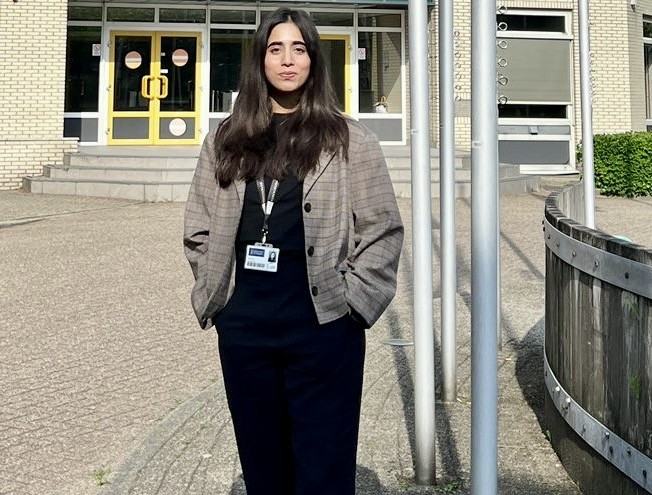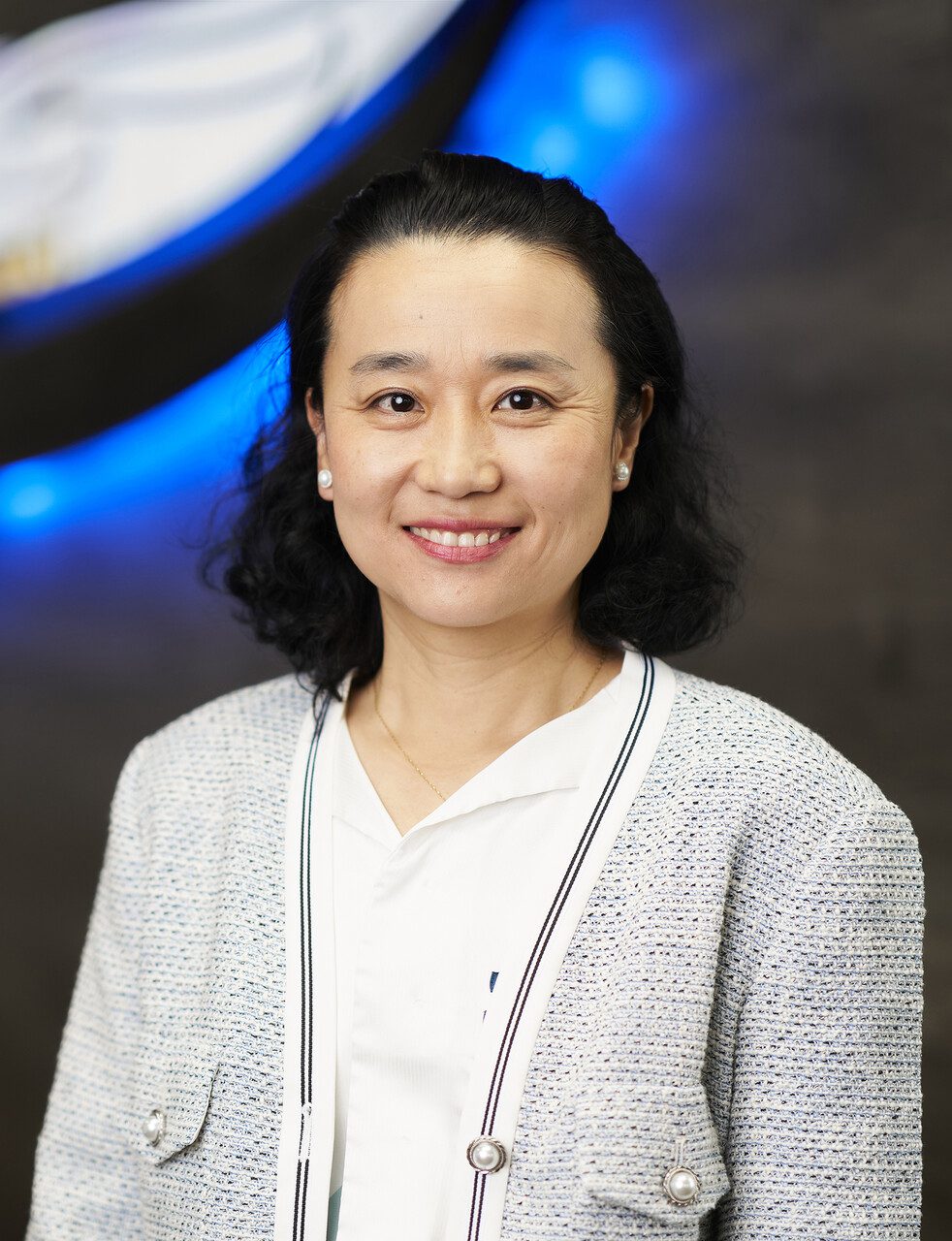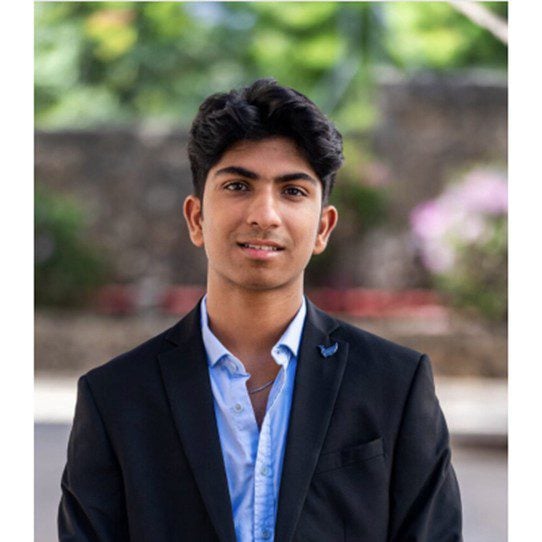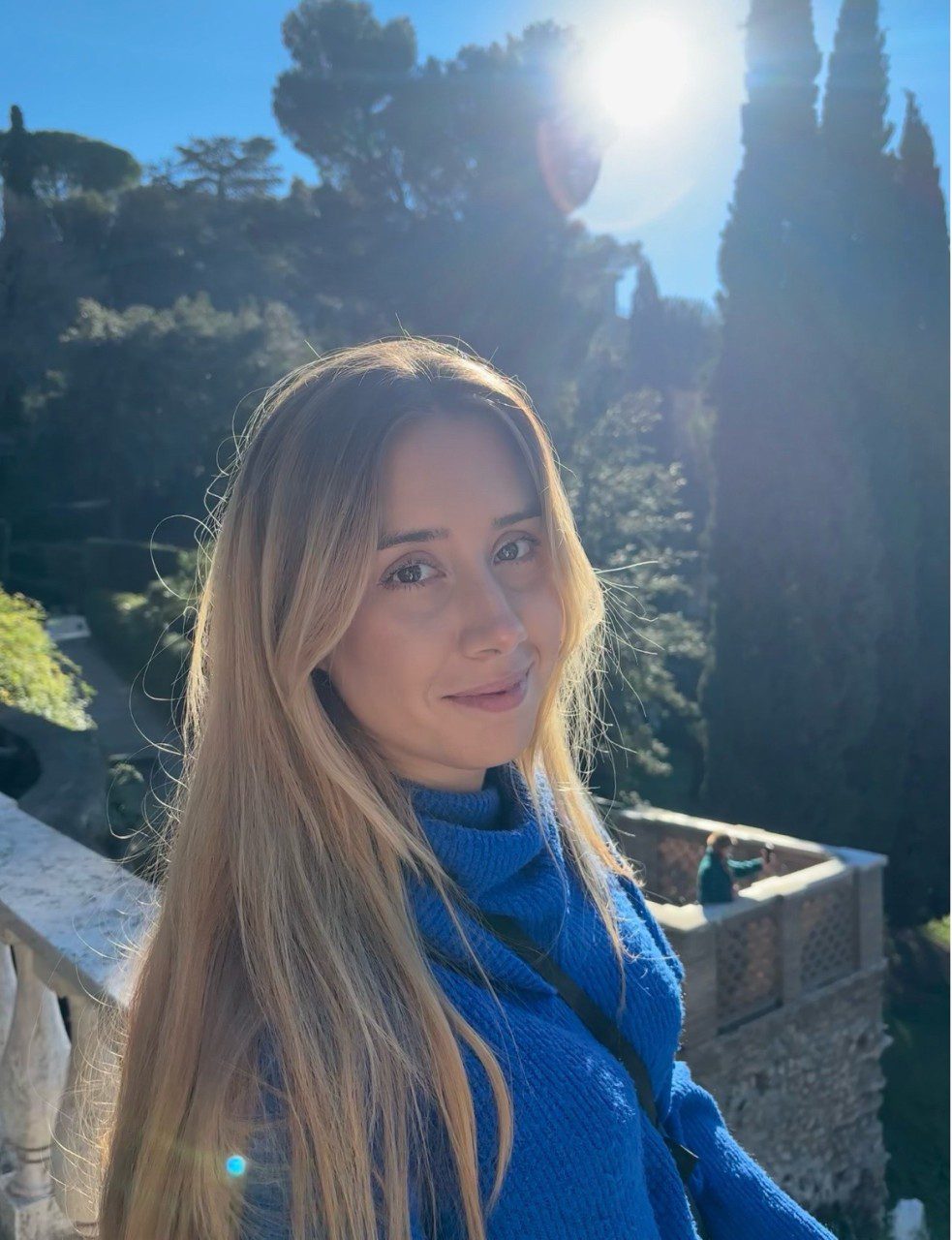How a Pakistani Scholar Earned the Fully Funded Erasmus Mundus Scholarship to Study Security, Intelligence, and Strategic Studies Across the UK, Ireland, and Czech Republic
University: University of Glasgow, Dublin City University, Charles University
Degree: International Master’s in Security, Intelligence, and Strategic Studies (IMSISS)
Previous Education: Bachelor’s in International Relations – National Defence University, Pakistan
Scholarship: Erasmus Mundus Scholarship – Fully Funded
Social Media
LinkedIn: linkedin.com/in/ayesha-zafar-063a37289/

The Journey
Hi, my name is Ayesha Zafar, and I’m currently working as a researcher on an EU-funded project that explores the Russia-Ukraine war and the emerging nuclear rhetoric surrounding it. This research is being conducted in collaboration with the Peace Research Center Prague (PRCP) and the German Institute for International and Security Affairs (SWP).
Originally from Pakistan, I’m currently based in the United Kingdom as part of my postgraduate journey. I’m a recipient of the fully-funded Erasmus Mundus Scholarship and a student of the International Master’s in Security, Intelligence, and Strategic Studies (IMSISS), a joint degree program funded by the EU’s Education, Audiovisual and Culture Executive Agency (EACEA). Through this program, I’ve had the opportunity to study at the University of Glasgow in Scotland, Dublin City University in Ireland, and Charles University in Prague.
My academic and professional experiences across these countries have deepened my understanding of European and global security challenges, and I’m passionate about contributing to meaningful policy discussions through research and international collaboration.
Educational Background
Before joining the Erasmus Mundus program, I completed my undergraduate degree in International Relations from the National Defence University in Pakistan and graduated with a Chancellor's Gold Medal. The degree laid the foundation for my interest in global security, diplomacy, and conflict studies. During my undergraduate years, I took core courses on global terrorism, international law, diplomacy, and foreign policy analysis, which helped me develop a strong analytical and conceptual understanding of international affairs.
Alongside my academic work, I gained practical experience through internships and research roles at several research institutes, think tanks, and government bodies in Pakistan. I contributed to research on regional security, conflict resolution, and foreign policy, experiences that sharpened my ability to think critically, write analytically, and work within interdisciplinary teams. I was also actively involved in preparing reports and policy briefs, some of which informed discussions at the national level.
This blend of academic training and hands-on experience equipped me with the intellectual curiosity and adaptability needed for the multi-country Erasmus Mundus program. Studying and living in different countries, including the UK, Ireland, and the Czech Republic, required cultural sensitivity, openness, and a global mindset, all qualities I had already started to cultivate through my early academic and professional experiences in the field of international relations.
How Did You Prepare to Apply for the Erasmus Mundus Scholarship?
To be honest, I didn’t apply for many scholarships because I was fortunate enough to be accepted into the Erasmus Mundus program, which was actually the only scholarship I applied for right after completing my undergraduate degree. I didn’t spend a long time applying to multiple programs, which in hindsight makes me feel incredibly lucky to have been selected for the one I truly aspired to be part of.
The application process for the Erasmus Mundus International Master’s in Security, Intelligence, and Strategic Studies (IMSISS) was highly competitive. Thousands of candidates from across the globe applied for just 21 spots worldwide, only three of which were allocated to applicants from Pakistan. Competing against such a diverse and highly qualified pool of candidates, many with years of experience and strong academic records, was certainly challenging.
What drew me to Erasmus Mundus was the unique opportunity to study at three renowned institutions across Europe, immerse myself in different cultures, and interact with students and experts from all over the world. Additionally, the program’s fully-funded nature, covering tuition, accommodation, and travel, was a huge advantage for someone aiming to pursue high-quality education without financial burden.
I believe what helped my application stand out was the clear alignment I built between my academic background, professional experience, and the focus of the IMSISS program. I made sure my CV and Letter of Motivation directly reflected the key themes of the degree, security, intelligence, and strategic policy, and demonstrated how my prior work in research institutes and government organizations had already prepared me to contribute meaningfully. I showed that I had done substantial work in the field and had a genuine passion for growing further, contributing to the academic community, and ultimately becoming a leader in this domain.
In the end, I think it was this coherence between my academic foundation, hands-on experience, and commitment to the program’s vision that made me a strong candidate.
Could You Briefly Discuss the Erasmus Mundus Program You Pursued and the Specific Field of Study It Focused On?
I pursued the Erasmus Mundus International Master’s in Security, Intelligence, and Strategic Studies (IMSISS), a highly interdisciplinary program focused on contemporary security challenges from both theoretical and practical perspectives. The program is jointly offered by the University of Glasgow (UK), Dublin City University (Ireland), and Charles University (Czech Republic), allowing students to study in three different academic and cultural environments.
IMSISS focuses on areas such as intelligence and security policy, strategic decision-making, conflict prevention, counter-terrorism, cybersecurity, and regional security dynamics. The curriculum is designed to equip students with both academic knowledge and practical skills necessary for careers in policy-making, research, intelligence analysis, and international security.
What makes this program unique is its multi-country structure, which not only broadens academic exposure but also builds intercultural competence and adaptability, essential traits for working in global security and policy environments.
How Did the Cost of Living Vary Across the Countries You Studied In? Which Country Was the Most Affordable or Expensive, and How Did You Manage Financially?
Managing expenses while studying across three different countries was definitely a task, but thankfully, the monthly stipend provided through the Erasmus Mundus scholarship helped me navigate the financial side of this two-year journey.
In terms of affordability, there were clear differences between the countries. Dublin was by far the most expensive, primarily due to the ongoing housing crisis. Securing affordable accommodation was particularly challenging, and the overall cost of living, from groceries to transport, was noticeably higher compared to the other cities.
On the other hand, Prague was the most affordable. Accommodation and general living expenses were very budget-friendly, and the quality of life was excellent. Beyond affordability, Prague has a vibrant, welcoming atmosphere that truly steals your heart. There’s a unique charm to the city that draws you in and makes you want to return again and again. In my experience, nothing quite compares to Prague, both in terms of lifestyle and student experience.
Overall, while balancing costs required planning and budgeting, the scholarship support and the diverse experiences in each country made it all manageable and deeply rewarding.
Did You Face Any Language Barriers, and if So, How Did You Overcome Them? Did the Language of Instruction Change From One Country to Another?
I didn’t face any major language barriers during my studies because the mode of instruction was English at all three universities, the University of Glasgow, Dublin City University, and Charles University. Even back home in Pakistan, my academic background was in English, so I was already comfortable with it as the primary language of learning and communication.
However, in Prague, most of our classmates did experience some difficulty navigating daily life outside the university. Since Czech is the primary language spoken there, things like grocery shopping, using public services, or interacting in local settings could be a bit challenging at times. That said, the university environment itself was entirely English-speaking, so it didn’t affect our academic experience. It just required a bit of patience, adaptation, and sometimes the help of translation apps to get by in everyday situations.
Would You Recommend the Erasmus Mundus Program to Others? What Advice Would You Give to Someone Considering This Scholarship?
I would definitely recommend the Erasmus Mundus program to others. It’s truly a once-in-a-lifetime experience; nothing compares to the academic, cultural, and personal exposure it offers. Beyond the high-quality education from top European institutions, the program teaches you how to manage life independently, adapt to new environments, and grow both professionally and personally.
My biggest advice to anyone considering this scholarship is: apply. Apply not just for Erasmus Mundus, but for other opportunities as well, and keep your options open. But if you are lucky enough to receive Erasmus, make the most of it. Engage with your peers, explore different cultures, take your coursework seriously, and push yourself outside your comfort zone.
If you fully embrace the experience and put genuine effort into your academic and personal development, I truly believe Erasmus Mundus gives back a thousand times more than what you put in. It's an investment in yourself that continues to pay off long after graduation.
Looking Back, Would You Have Done Anything Differently During Your Time in the Program?
Looking back, I wouldn’t change much because the program truly shaped me in so many positive ways. However, if I could do one thing differently, I would try to engage even more with local communities and student networks outside of the classroom to make the most of the cultural exchange and networking opportunities each country offered.
Want to submit your
scholarship journey?
Submit Your Story Here!
More Scholarship Recipients

I obtained my bachelor’s degree from a leading university in mainland China. After graduating, I worked at Huawei Technolo .... Read more

My name is Arsh Dharani, and I am an international student originally from the Democratic Republic of the Congo (DRC). I am .... Read more

Hi! My name is Arawa. I’m a Marie Skłodowska-Curie PhD researcher working on AI-based neuroimaging biomarkers for Parkins .... Read more

Leave A Comment